
Haunted MTL Original – Paint Night! – Gabriel Munro
More Videos
Published
5 years agoon
By
Shane M.“Paint Night!” by Gabriel Munro
“Now, now, now,” scolds the instructor, dislodging Harriet’s paintbrush from its neck, “stabbing isn’t a part of paint night!”
Harriet is petrified. Tears tumble down her frozen cheek. The instructor wraps one of its forelegs around her and starts to carry her to the front of the class, its legs clicking cheerfully on the vinyl floor as it goes.
“Harriet!” it instructs, placing her by the little stage at the front, “Maybe you’d like to remind everyone about the oath you took at the start of paint night!”
Harriet crumbles into a heaving mound of sobs. I lurch off my stool to go and comfort her. I know what awaits me, though: an electric pain shoots through me the instant I touch the floor. I’m losing the world’s cruelest game of ‘the floor is lava’, and I yelp with each step.
Dee just glares at me, while everyone else looks on worriedly or resumes their desperate painting. The instructor doesn’t take much notice of me. I try to run, but I only manage a step or two before I’m on all fours, scalding my knees and forearms.
“Now, now, dear,” it continues, “What was it we all promised? At the start of the night, remember?” Maybe there’s something in Harriet too resolved, too rebellious to capitulate. Maybe her tyrannical fear has met its match in her monstrous spite.
“Oh, look! One of your friends is coming to help you! Maybe to remind you!”
Tap,tap,tap,tap,tap, I’ve never heard a more terrifying sound than the instructor scuttling toward me. In a moment it’s above me, and I feel one of its bony legs pegging me in place. I let out a terrible groan.
“What did we promise?”
I want to rebel. I want to be like Harriet, to spite the creature however meaninglessly, in whatever certain futility, in whatever clumsy way – if only to hurt its feelings. I want to resist.
I try to move, to turn over, to claw at the instructor, but I can’t. It pushes me harder into the floor.
“Have fun! To have fun!” I scream.
“Yes! Yes, that’s it!” coos the delighted instructor. “Now you, Harriet!”
Harriet has started to control her breathing. She sits up and glowers into the instructor’s multitudinous eyes with a look that could melt steel. The instructor pushes me a little harder, extracting another yelp, and that’s enough to break Harriet.
“To – to have fun.”
The instructor places me back on my stool, and then carries Harriet to hers. My hands are trembling so much I don’t even know how I’m supposed to pick up a paintbrush, let alone use it.
“We all promised to have fun!” sings the instructor. “And I’m seeing some really good cows here! So many artists!”
At the front of the room is the image we’re to recreate: a painting of a cow that seems to be licking into its own nostril, entitled “She’s Got Mooves”. Maybe the cow depicted is trying to perform its own lobotomy. I’ve never hated an object so much in my entire life.
“What were you thinking?” Dee hisses at me. I know she can’t fully disapprove of my actions; she’s as compassionate and brave and principled as anyone. In fact, I’m a little surprised that it was I who explored such a doomed gesture of heroism, not Dee. But she’s worried about me, and this diet of fear is bound to have fury as its blossom.
“I don’t know,” I admit.
“Just paint your cow!”
I don’t know how I found myself in a situation in which my best friend is giving me the same orders as my frightful enemy. Perhaps I’m at the crease of reality’s moebius strip, where things flow into their opposites, where life can only continue forward by running into its contradictions. Mary, who sits to my left, rocks back and forth on her stool, chanting her terrified mantra of “I’ll have fun, I’ll have fun!” in an unending loop of horrified jubilance. Yes, definitely a moebius strip.
I put my hand on Mary’s shoulder.
“I know,” I say, “it’s okay.”
“I – I can’t paint it!” she whispers. “Not perfectly!”
“Look, it’s better than mine!” I say, tilting my canvas toward her. It’s true; both Dee and I are painting at a significant disadvantage to everyone else here, and it’s all our fault. While everyone else here was buying advance tickets at forty dollars apiece, Dee jokingly entered her name into an online contest for free admission. While everyone else was encouraging their friends to join them for a good night out, Dee was wondering which of her friends was sarcastic enough to properly mock the evening with her. She chose me. This room full of white 30 and 40-something women all came because they thought paint night would be fun. Dee and I just came because we thought it would be funny.
And so, while everyone else sincerely worked to replicate the cow we were presented, Dee and I made mockeries of it. Dee’s was a donkey-looking thing with a moustache and a cigarette. Mine had a forked tongue, reptilian stripes, and teary red eyes.
God, it’s hard to paint a proper cow on top of a bovine monstrosity.
For the first several hours after the instructor’s transformation, I tried to un-fork the tongue, to paint over the red eyes, to blot out the stripes. I almost cried with frustration at the damn thing. In a tantrum, I painted the whole thing white and started over. I’m now on my fourth attempt.
The lady across the table from me hesitantly raises her hand.
“I think I’m finished!” she blurts.
“Wonderful!” cheers the instructor, scuttling back to our corner of the room, “Did you hear that, everyone?”
Dee and I exchange worried glances.
I know the instructor promised we would be released when we perfected our paintings, but two things have been gnawing at me since. The first is, I’m sure, a fear that I share with everyone in the room: that it can’t be done. There have been over a dozen assertions of completion so far, and, every time, the instructor inspects the paintings to find something lacking. Maybe there’s no such thing as a perfect recreation. Maybe the cow’s too damn stupid to occur twice in nature, like a lightning bolt of idiocy that can’t strike twice. But beneath that, seeping cruelly and coldly through my mind and slowing my every brushstroke, is another fear: I am not certain that being released doesn’t mean being eaten.
The instructor creeps up behind the lady and peers into her painting. With those black eyes, I can’t know for certain that the instructor is looking at the painting at all, and not beyond it to me.
“What a cow!” slithers out a chilling voice. “Oh yes, what a cow.”
I notice that I’m holding my breath. I’m sure the lady is, too.
“Does – does this cow seem happy to you?” the instructor asks at last.
“Very happy!” urges the lady with a voice that gushes hopeless hope.
“Yes… yes, happy. But look!” the instructor turns its eyes to the painting at the front of the room, “Look at her! She’s got moves! Doesn’t she look, oh, I don’t know – happier?”
“My cow is happy!” insists the lady, “She’s got moves!”
“Almost there,” promises the instructor, beginning its way back to the front of the room, “maybe try a little more brown!”
My hands are still shaking, but I smear white paint over my last attempt. I loathe this inappropriate object of my attention, this golden calf, this meaningless contest that is likely to reward me only in destruction.
A few other painters are complimenting the not-happy-enough cow painting, as if their reassurances matter. I look across the room to Harriet. She hasn’t touched her paintbrush since stabbing the instructor. She just sits there, staring a million miles through her canvas. I wish I could go over to talk to her.
If I stop painting, I risk attracting the instructor’s attention, but I’m sick of chewing the same artistic cud like a moronically contented cow. So, I try something different: I squeeze a bit of black and green paint onto my palette and begin a rough outline of the instructor. It proves surprisingly difficult. The anatomy of the instructor so disagrees with my basic assumptions about how a body should act. At least with a cow you know which way the limbs will bend, which way the eyes face, how much un-forked tongue a nostril can fit.
Dee glances at my horrible handiwork.
“Nice cow, but is she happy?” she teases, “Like, really happy?”
“She’s pretty happy,” I assert.
“Is she so happy that her brain is oozing out her nose and she needs to try to ingest what she can of it, if only to taste the sweet cerebral drippings of unadulterated joy?”
“Hm.” I say, judiciously, “Maybe not that happy.”
“Keep trying, then. Almost there. Maybe a little more eldritch-terror-green.”
“What are you doing?” Mary whispers, “What is that?”
“Don’t worry about it, Mary,” I soothe, “I just needed a break.”
“Please just paint a cow!” she pleads.
Her unthinking terror bothers me. Everyone here is afraid, of course, but the adrenaline spike could only last for so many hours. Dee has arrived at a state of fear that still allows room for sarcasm and humour. I’ve arrived at one that cohabits with small acts of meaningless rebellion. Harriet’s even gave way to true defiance. But Mary, Mary is still held tight in its clutches, with no inch ceded to other motivations. I find it disturbing.
“It doesn’t matter,” I say.
“It does matter!” she declares, her voice rising to command the attention of those around us. “If you and your friend could ever take anything seriously, we wouldn’t be here! We’d be home! We’d be safe at home with our dog!”
“What does that mean?” Dee demands.
“The instructor! The first thing, when it transformed – the tongue!”
The instructor had been a chipper lady, though that seems an eternity ago now. What Mary’s remembering is the first bit of the instructor to change. Long before the scales and the extra legs and eyes, the first change we noticed was that her tongue grew long and forked. At first, everyone had been worried for the instructor’s health. An eternity ago, indeed.
“So?” Dee replies.
Mary turns to me with a look of dreadful import. “Your cow!” she says, “The forked tongue!”
“It’s not – ” I stammer, thinking back to my bovine parody, “That wasn’t – ”
I want to object, but I don’t know on what grounds. It’s ridiculous to think my painting instigated the instructor’s hellish transformation, but not more ridiculous than anything else that’s happened tonight. I can’t pretend to fathom the logic of whatever curse we’re under. Could it really be that my sarcastic superiority gave birth to a demon? That if I could have just let these affluent ladies enjoy their evening, we’d all be free?
“This isn’t our fault!” Dee declares. “Anyway – ” she begins, but we’re all silenced by that dreadful tapping, like impatient doom is at the door: the instructor creeps closer.
“Is everyone having fun?” it chirps. Everyone at my end of the room nods in fervent affirmation. The instructor slithers up behind my row and takes a moment to appreciate each painting.
“Oh, yes. I love the colour! Look at that pretty lady,” it coos, moving slowly toward me, one person at a time, “Wow, what a great job! You’re such an artist!”
Each mediocre and insufficient cow gets its due exultation.
The instructor stops when it gets to me, peering over my shoulder at its ugly portrait. Its little brook of compliments has run dry. Dee throws me a terrified look, and I wait for the instructor’s fell retribution.
And I keep waiting. The instructor is suspended in fascination.
“I told them not to,” offers Mary, cracking under the weight of the silence.
“Why?” asks the instructor, “Don’t you think it’s beautiful? Don’t you think it’s – ” but the sentence just dissolves into a hissing sighing noise.
“Thank you,” I venture.
“You’ll have to paint over it, of course! To do your cow. What a shame!” laments the instructor. “Oh, I’ve got an idea! Why don’t you take it around the room and show it to everyone? Then you can start on your cow again!”
“But – but you know I can’t walk! The floor – ” I start, but a strike from one of the instructor’s legs knocks me right off my stool. It’s an overwhelming sensation – the pain from the floor makes me need to expel some wail or shriek, but the wind has been knocked right out of me. All my confused body can do is cough violently, choking on air, as I try to turn myself over and scramble back to my stool. In an instant, Dee is on the floor beside me, helping me back up.
Once I’m on my feet, the instructor shoves the painting into my arms.
“Go around,” it orders, “show them!”
I lift the painting above my head for all to see.
“Oh, that’s no way to see it!” the instructor urges, with the voice of a Komodo dragon trying to teach kindergarten. “Take it around!”
“Why don’t you do it?” Dee barks.
The instructor replies with a different tone than I’ve ever heard it use. So far, everything’s been a miasma of bright enthusiasm and searing excitement. This is the first time the instructor’s actually sounded serious and sincere.
“I’m not the artist,” it says.
I know Dee would argue on my behalf. And I know she’d endanger herself by doing so, and avail me nothing, so I don’t wait for further discussion: I begin my torturous, tortuous clamber down the line of stools.
“See?” I say to each painter I pass, waving my portrait at them, “See?”
Each step I take exacts a terrible punishment on my foot, and my body stupidly believes I may buy its relief at the expense of the other, so I hop between the two like a jazzy firewalker.
I make it up to the end of the row and turn to come back down the other side. I only pass two more painters when my feet refuse to endure any more: I fall to my hands and knees.
Two women try to help me up from where they’re sitting, and a third gets off her stool. I spout apologies at her as she lifts me up. Every position I’m in feels wrong: I’m happy to spare my forearms and legs, but now my feet burn intolerably. Another few steps, and I’m stumbling again; all that keeps me from falling are the arms of another painter.
But there’s no relief in movement. I need to override my body’s belief that there is. I can’t fight the pain, I can’t negotiate with it, I can only bear it. I stop my hopping and focus on taking measured, deliberate steps. My whole body is tense and rebels against every little thing: the small painting I carry feels impossibly heavy, my eyes want to scrunch closed, and I have to force myself to breathe.
“See!” I yap at each person in turn. Most of them mhm at me in confirmation. A few offer me encouragement, or place their hand on my shoulder to guide me forward. I’m almost a third of the way.
“It’s wonderful to see such creative work!” cheers the instructor from between Dee and Mary. “But it’s also important to remember the real meaning of paint night! To recreate a painting, and to have fun doing it!”
I’m losing dominion over my mind: the pain is enacting a hostile takeover of its basic functions. I’m a glitching computer, a skipping record, a jammed gear, and I’m stuck repeating the instructor’s flippant phrase to myself again and again, like my head could spin it into gold with one more try.
To recreate a painting, to have fun doing it, to recreate a painting, to have fun doing it, to recreate…
I briefly wonder how many repetitions of my litany stand between me and the completion of my canvas canvass. I’ve seen about half the painters when my body mutinies: with all my concentration, I’ve managed to keep from hopping or falling, but now my limbs stall entirely. My legs lock, and I feel the pain flow through me all the way up to my shoulders.
I try to relax. I slow my mantra, perching upon each word like it holds some delicious secret.
To… recreate… a … painting…
And as I try, in my first attempt and in the midst of my agony, to achieve the sort of transcendence a luxuriating philosopher or Buddhist monk would only dream of, my mind instead lands upon the most banal and obvious fact: the meaning of paint night has nothing to do with a cow.
I have a sense that it’s a valuable realization, but my pain denies me any conjecture as to why. I just know that if I keep moving forward, I can tell our hero, Harriet.
Relax, relax, relax. In an excruciating minute I regain control over my legs.
The instructor begins inspecting and complimenting more cows, and I press forth with my pained paint campaign, holding my portrait out to person after person, receiving their warm words like alms.
I turn down the final row of tables, at the end of which sits Harriet. I notice that, of all the strangers here, the one I admire most is the one who was sitting farthest away from me. Perhaps distance nurtures admiration.
Now that I’m up close, I see her countenance is a ghastly one. While everyone else sitting in her row is eager to dole out their measure of comfort to me, Harriet only regards my approach with a look of dissociated alarm.
“It’s not the cow!” I whisper to her as I near. “It’s not the cow! It’s just the painting!” I can tell she has even less of an idea what I’m trying to express than I do.
“Just a moment, and I’ll carry you back!” I hear the instructor announce.
I barely know what I’m trying to say and have no idea how to say it.
“The meaning of paint night! It’s not She’s Got Mooves! It’s replication!”
Tap,tap,tap,tap,tap.
I know my time’s up. My idea is murky, but I won’t get another chance to talk to Harriet, and she’s the only person besides Dee I can trust to be brave. I lean into her ear as the instructor approaches.
“When I nod to you, call the instructor.”
And with that, I’m startled by relief; the instructor lifts me from the floor and carries me back to my stool.
“Didn’t everybody love that?” it chimes, letting me down in my proper place, “Now, you get to work on your cow, Michelangelo!”
Dee leans as far as she can off her stool to give me a hug. My body doesn’t know what to make of its sudden relief. I curl into her embrace, gasping and sobbing and shaking, and feel overwhelmingly grateful to have her here.
“The meaning of paint night,” I try again, “it’s to replicate! To replicate the painting!”
“I know,” she soothes.
“Nobody can recreate the cow! But it’s not about the cow!”
“What do you mean?” she whispers, suddenly noticing my seriousness.
“What if it was something we could recreate? Something – ” my thoughts fail me. The scorching pain evaporated them all and it’s taking time for them to condense back into anything useful. “Something without meaning! Something easy. Something that didn’t have to be perfect.”
Dee leans back far enough to look me in the eyes.
“Do you mean, if we changed the painting?”
I nod.
“How? We can’t even reach it, and there’s the instructor.”
“I just made it all the way around the room. You just need to get used to the pain before you start. Otherwise your legs won’t work right and you’ll just trip.”
“What are you whispering about?” demands Mary from behind me. I straighten up and turn to look at her.
“Your cow’s coming along,” I note. For all the effort she’s poured into it, though, even I can see that its proportions are off and its colours muddy. Poor Mary; she came here with good intentions – either to chase after some jewel of value within the velvet folds of her comfortable and bored life, or merely to warm herself by whatever social sparks might be emitted by such a gathering of cheerful women. And all any of them found, all that their money and sociability afforded them, was this nightmare.
“What are you two talking about?” she asks again. “Can’t you just work on your painting?”
“Keep failing, you mean? I don’t want to paint a cow, I want to kill a cow.”
“But – but you can’t!” she whispers in a panic, “If you do anything to the painting, I won’t be able to copy it! And we’ll never get out of here!”
“Stop trying to win!” I snap, “The instructor’s never going to save you!”
“I won’t let you!” she declares. “You’re not touching that painting.”
While she puts her foot down in a figurative sense, I put both of mine down in a literal one. I remind myself, as a bolt of pain shoots up my legs, that although the floor hurts me, it never actually seems to damage me. I don’t have burn marks on my forearms, for instance. Somehow this knowledge makes the pain a little easier to tolerate. I know I’m not destroying anything precious.
I turn my back to Mary again, and focus on my breathing. I can feel tears springing to my eyes, like they’ve been blasted up from the floor’s electric charge. Breathe, breathe, breathe. Dee holds my hands, and I squeeze hers hard enough to warrant a few whispered apologies. I consider how, despite our pretenses, I came here for a similar reason to everyone else. The only difference is that the warmth I sought was Dee’s. Dee and I came for a different kind of vanity, and a different kind of neediness, but even our painted cattle demons were still basically cows after all.
In a minute that can only be measured in decades, I think I’m suitably adjusted to be able to control my legs. I let go of Dee’s hands and turn my palms up to her.
“Can – ” God, it’s hard even to speak, “can you fill them?”
“Paint?” she checks. I nod.
She pours a bottle of blue paint into my cupped hands until they’re overflowing. I look across the room to Harriet.
Harriet was brave, but what am I? Is this courage or recklessness? If Mary’s right, and my smug mockery is what triggered this monstrous mess, will destroying the painting do anything more than compound my arrogant misstep? Will I be dooming everyone here?
Harriet’s eyes meet mine, but I’m not sure I see much recognition therein.
Maybe I’m a fool, maybe even a traitor. Maybe the pain is making me too impatient to think straight. Maybe, maybe, maybe. But inaction is inane, and I’m willing to let She’s Got Mooves be the sacrificial cow on the altar of our freedom. I nod to Harriet.
She just looks at me with wide eyes. I nod again, emphatically, and she slowly raises her hand.
“All finished!”
“Fantastic!” squeals the instructor from the head of the room. It starts trotting down toward her. There’s a moment I’m waiting for: after the instructor is far enough from the front that I have a running chance, but long enough before it sees that Harriet has nothing on her canvas and it turns its attention back to the room. In that golden instant of the monster’s oblivion, I have my opportunity.
The moment comes, and I run like hell.
And no sooner am I off my stool than I hear Mary’s shrill cry, “Instructor! Instructor!”
Now it’s hopeless and I know it. The instructor bolts toward me as I tear toward the canvas at the front. If only I had another few seconds – long enough to blot it out, to exact my terrible, complete justice on that hateful icon of contentedness, that parody of happiness, that self-tasting cow.
But no. I feel a crushing blow from behind me, knocking me to my chest. I spin around to see the instructor above me, pushing me down into the cruel floor. I scream, and flail upward. All I manage to do is smear blue paint all over its face. It tries to wipe its eyes, but its legs are just sharp bug-like things and do little good.
“This isn’t fun!” it wails, blue-eyed-soulless.
And then I hear Mary, again calling the instructor to attention: Dee is stumbling past us, her hands full of black paint. The instructor stabs its legs around, but it can’t see anything, and Dee has no trouble evading it.
Once she’s at the front, Dee smears her hands all over She’s Got Mooves with every bit of the pleasure I’m sure I would’ve milked from it, so to speak. The instructor kneads its face into my shirt, wiping itself to reveal the monster behind blue eyes, and then rises to look at the horrible sight before it: an entirely black canvas standing, like a grim reaper sent by the age of abstract art, to claim paint night’s soul.
Not a breath is taken, not a sound made. Everyone waits for the awful consequence of our actions.
And then, slowly, Harriet lifts a black canvas, stepping from her stool without a wince of discomfort.
“All finished!”

Gabriel Munro is a writer and composer living in Toronto. His life has taken him from homelessness in Canada to opening schools for mothers in Bangladesh and Nigeria. He has recently received a Radio Broadcasting Diploma from Humber College, and continues working to ensure the accessibility of education overseas.
You may like
2 Comments
Leave a Reply
Cancel reply
Leave a Reply
This site uses Akismet to reduce spam. Learn how your comment data is processed.
Today on Nightmarish Nature we’re gonna revisit The Blob and jiggle our way to terror. Why? ‘Cause we’re just jellies – looking at those gelatinous denizens of the deep, as well as some snot-like land-bound monstrosities, and wishing we could ooze on down for some snoozy booze schmoozing action. Or something.
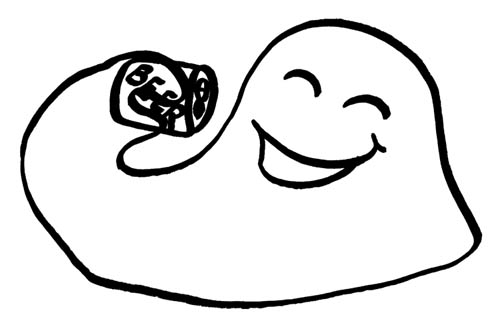
Honestly, I don’t know what exactly it is that jellyfish and slime molds do but whatever it is they do it well, which is why they’re still around despite being among the more ancient organism templates still in common use.
Jellyfish are on the rise.
Yeah, yeah, some species like moon jellies will hang out in huge blooms near the surface feeding, but that’s not what I meant. Jellyfish populations are up. They’re honing in on the open over-fished ocean and making themselves at home. Again.
And, although this makes the sea turtles happy since jellies are a favorite food staple of theirs, not much else is excited about the development. Except for those fish that like to hide out inside of their bells, assuming they don’t accidentally get eaten hanging out in there. But that’s a risk you gotta take when you’re trying to escape predation by surrounding yourself in a bubble of danger that itself wants to eat you. Be eaten or be eaten. Oh, wait…
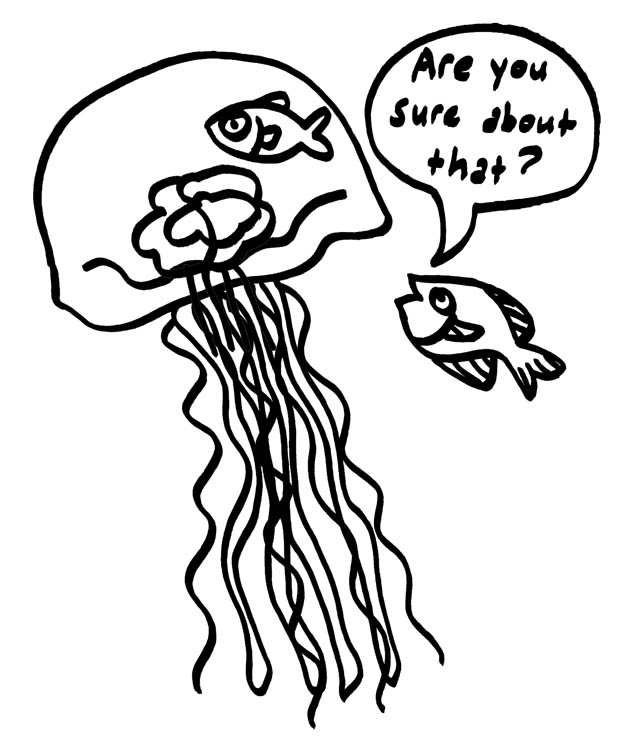
So what makes jellies so scary?
Jellyfish pack some mighty venom. Despite obvious differences in mobility, they are related to anemones and corals. But not the Man o’ War which looks similar but is actually a community of microorganisms that function together as a whole, not one creature. Not that it matters when you’re on the wrong end of a nematocyst, really. Because regardless what it’s attached to, that stings.
Box jellies are among the most venomous creatures in the world and can move of their own accord rather than just drifting about like many smaller jellyfish do. And even if they aren’t deadly, the venom from many jellyfish species will cause blisters and lesions that can take a long time to heal. So even if they do resemble free-floating plastic grocery bags, you’d do best to steer clear. Because those are some dangerous curves.
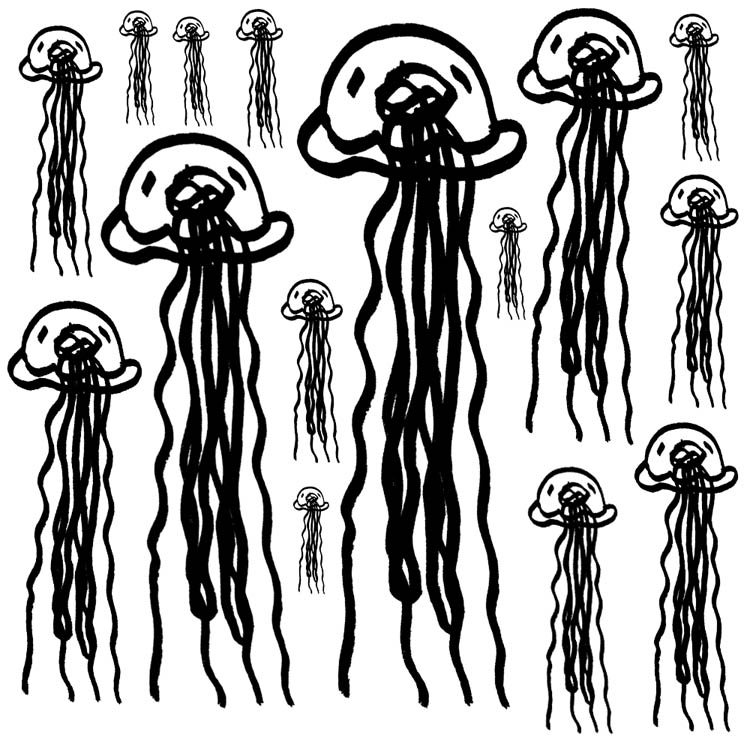
But what does this have to do with slime molds?
Absolutely nothing. I honestly don’t know enough about jellyfish or slime molds to devote the whole of a Nightmarish Nature segment to either, so they had to share. Essentially, this bit is what happened when I decided to toast a bagel before coming up with something to write about and spent a tad too much time in contemplation of my breakfast. I guess we’re lucky I didn’t have any cream cheese or clotted cream…
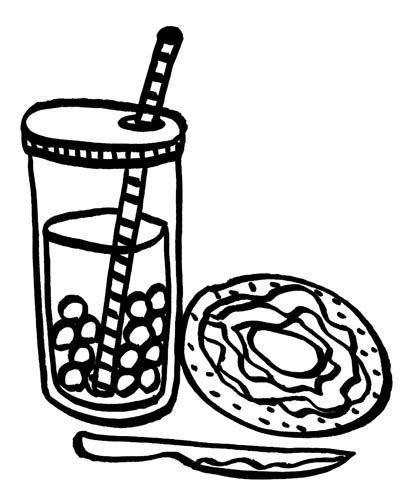
Oh, and also thinking about gelatinous cubes and oozes in the role-playing game sense – because those sort of seem like a weird hybrid between jellies and slime molds, as does The Blob. Any of those amoeba influenced creatures are horrific by their very nature – they don’t even need to be souped up, just ask anyone who’s had dysentery.
And one of the most interesting thing about slime molds is that they can take the shortest path to food even when confronted with very complex barriers. They are maze masterminds and would give the Minotaur more than a run for his money, especially if he had or was food. They have even proven capable of determining the most efficient paths for water lines or railways in metropolitan regions, which is kind of crazy when you really think about it. Check it out in Scientific American here. So, if we assume that this is essentially the model upon which The Blob was built, then it’s kind of a miracle anything got away. And slime molds are coming under closer scrutiny and study as alternative means of creating computer components are being explored.
Jellies are the Wave of the Future.
We are learning that there may be a myriad of uses for jellyfish from foodstuffs to cosmetic products as we rethink how we interact with them. They are even proving useful in cleaning up plastic pollution. I don’t know how I feel about the foodstuff angle for all that they’ve been a part of various recipes for a long time. From what I’ve seen of the jellyfish cookbook recipes, they just don’t look that appealing. But then again I hate boba with a passion, so I’m probably not the best candidate to consider the possibility.
So it seems that jellies are kind of the wave of the future as we find that they can help solve our problems. That’s pretty impressive for some brainless millions of years old critter condiments. Past – present – perpetuity! Who knows what else we’d have found if evolution hadn’t cleaned out the fridge every so often?
Feel free to check out more Nightmarish Nature here.
Original Series
Lucky Lucky Wolfwere Saga Part 4 from Jennifer Weigel
Published
2 weeks agoon
March 17, 2025Continuing our junkyard dawg werewolf story from the previous St. Patrick’s Days… though technically he’s more of a wolfwere but wolfwhatever. Anyway, here are Part 1 from 2022, Part 2 from 2023 and Part 3 from 2024 if you want to catch up.
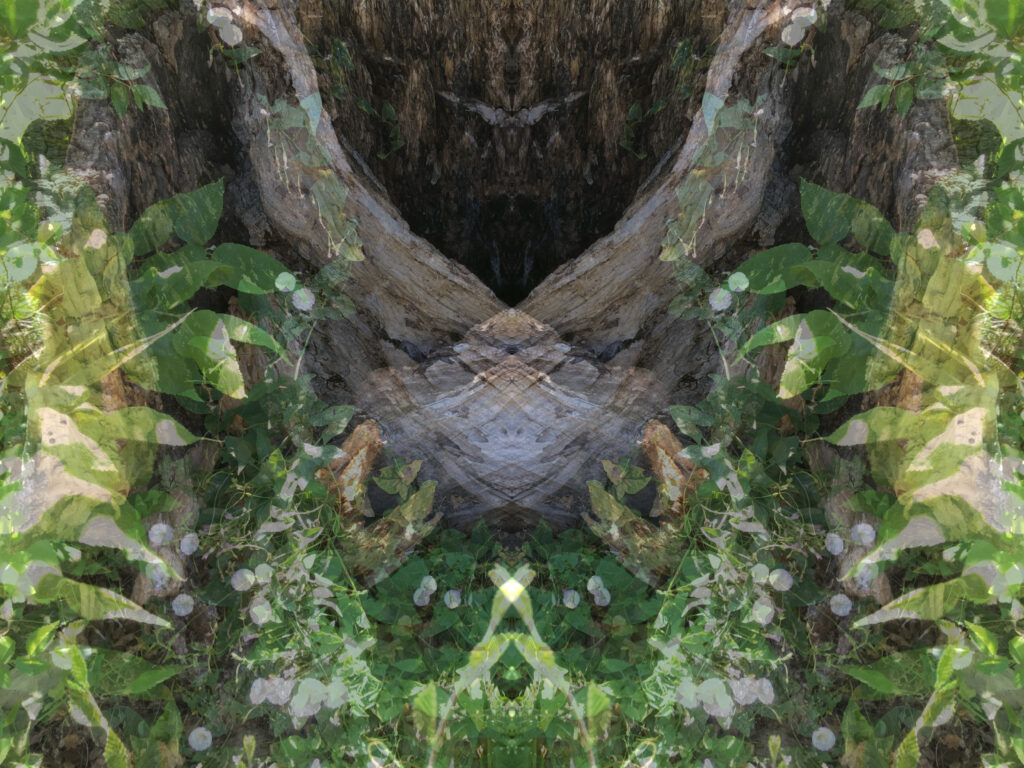
Yeah I don’t know how you managed to find me after all this time. We haven’t been the easiest to track down, Monty and I, and we like it that way. Though actually, you’ve managed to find me every St. Patrick’s Day since 2022 despite me being someplace else every single time. It’s a little disconcerting, like I’m starting to wonder if I was microchipped way back in the day in 2021 when I was out lollygagging around and blacked out behind that taco hut…
Anyway as I’d mentioned before, that Scratchers was a winner. And I’d already moved in with Monty come last St. Patrick’s Day. Hell, he’d already begun the process of cashing in the Scratchers, and what a process that was. It made my head spin, like too many squirrels chirping at you from three different trees at once. We did get the money eventually though.
Since I saw you last, we were kicked out of Monty’s crap apartment and had gone to live with his parents while we sorted things out. Thank goodness that was short-lived; his mother is a nosy one for sure, and Monty didn’t want to let on he was sitting on a gold mine as he knew they’d want a cut even though they had it made already. She did make a mean brisket though, and it sure beat living with Sal. Just sayin.
Anyway, we finally got a better beater car and headed west. I was livin’ the dream. We were seeing the country, driving out along old Route 66, for the most part. At least until our car broke down just outside of Roswell near the mountains and we decided to just shack it up there. (Boy, Monty sure can pick ‘em. It’s like he has radar for bad cars. Calling them lemons would be generous. At least it’s not high maintenance women who won’t toss you table scraps or let you up on the sofa.)
We found ourselves the perfect little cabin in the woods. And it turns out we were in the heart of Bigfoot Country, depending on who you ask. I wouldn’t know, I’ve never seen one. But it seems that Monty was all into all of those supernatural things: aliens, Bigfoot, even werewolves. And finding out his instincts on me were legit only added fuel to that fire. So now he sees himself as some sort of paranormal investigator.
Whatever. I keep telling him this werewolf gig isn’t all that it’s cracked up to be, and it doesn’t work like in the movies. I wasn’t bitten, and I generally don’t bite unless provoked. He says technically I’m a wolfwere, to which I just reply “Where?” and smile. Whatever. It’s the little things I guess. I just wish everything didn’t come out as a bark most of the time, though Monty’s gotten pretty good at interpreting… As long as he doesn’t get the government involved, and considering his take on the government himself that would seem to be a long stretch. We both prefer the down low.
So here we are, still livin’ the dream. There aren’t all that many rabbits out here but it’s quiet and the locals don’t seem to notice me all that much. And Monty can run around and make like he’s gonna have some kind of sighting of Bigfoot or aliens or the like. As long as the pantry’s stocked it’s no hair off my back. Sure, there are scads of tourists, but they can be fun to mess around with, especially at that time of the month if I happen to catch them out and about.
Speaking of tourists, I even ran into that misspent youth from way back in 2021 at the convenience store; I spotted him at the Quickie Mart along the highway here. I guess he and his girlfriend were apparently on walkabout (or car-about) perhaps making their way to California or something. He even bought me another cookie. Small world. But we all knew that already…
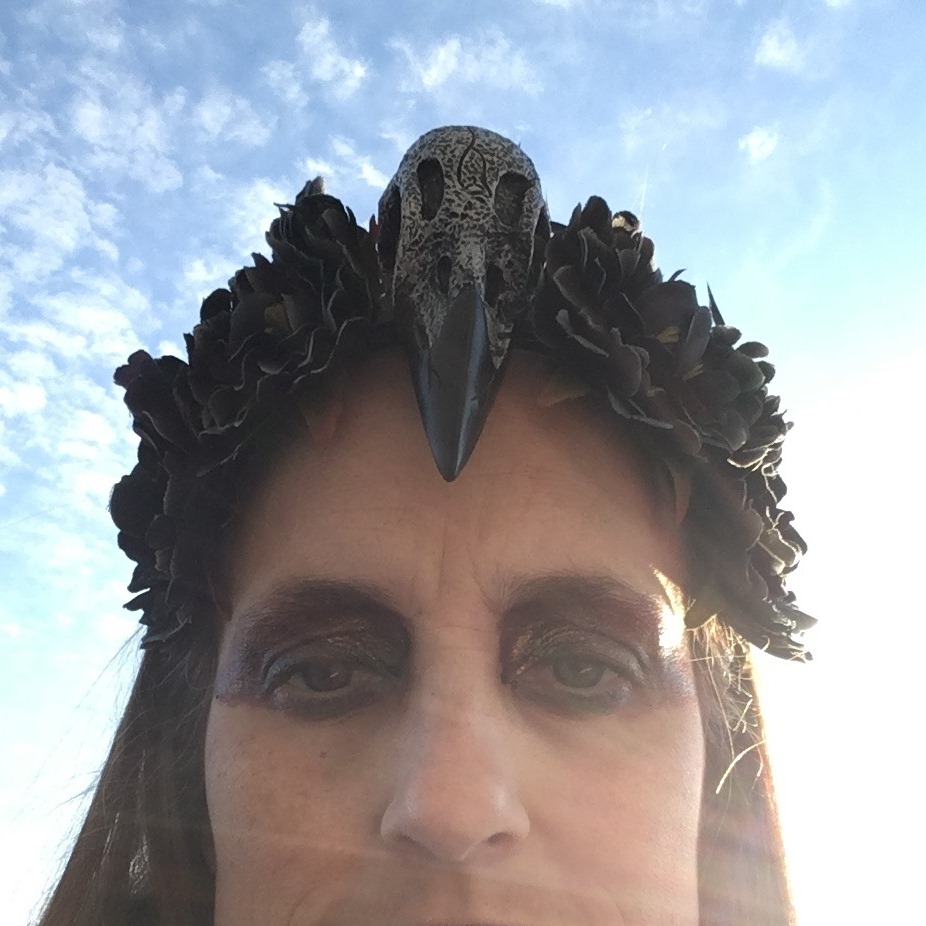
If you enjoyed this werewolf wolfwere wolfwhatever saga, feel free to check out more of Jennifer Weigel’s work here on Haunted MTL or here on her website.
Original Creations
Costumes – Figure Modeling Highlights with Jennifer Weigel
Published
2 weeks agoon
March 16, 2025You’ve seen me as Theda Bara, a Witch, and a Necromancer already (as well as Cleopatra, Elvis, and Andy Warhol) but here are some more fun costumes I’ve worn while figure modeling for the Friday morning art group at Hutchinson Art Center. The group is switching to Saturdays but hopefully I’ll still be able to make it in from time to time… Life’s a circus, or maybe a magic act in a shamanic ritual with Holly Hobbie… At any rate – beam me up Scotty, I have your missing spaceship part…
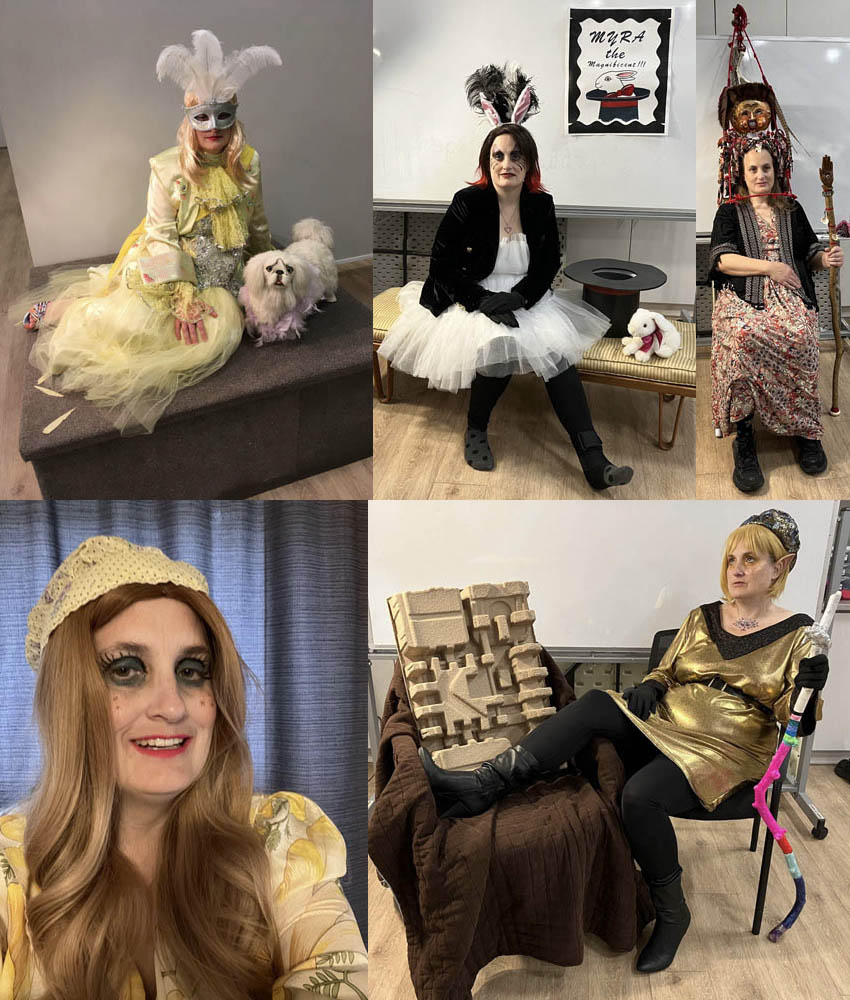
Yeah yeah, so none of that was really all that terrifying. Just another time warp in all honesty. At least there’s still some residual Rocky Horror vibes to be found, but then again, there usually are with me when I get into the identity based costumes.
But in follow up and in the spirit of so much of my other randomness, here’s a music video for Everything Changes by Eytan and The Embassy. Check it out if you want to see some more fun costumes in an immersive homage montage experience unlike any other. (If the video doesn’t load, just follow the link here.) See how many artists you can recognize in this quick change setup. Ready… Set… Go!


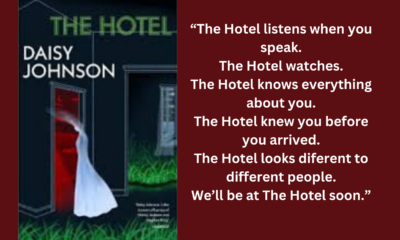

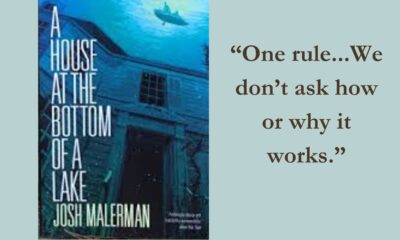



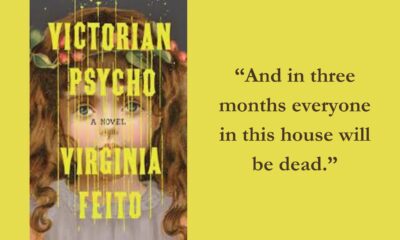

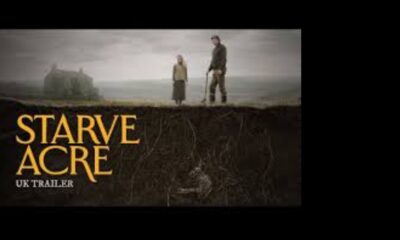



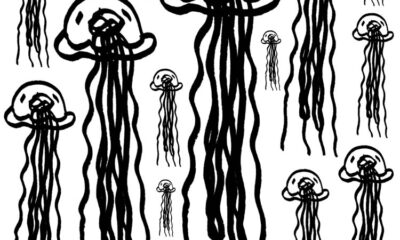

VoodooPriestess
September 19, 2020 at 2:00 am
She’s got Mooves. The story is the best and works awesomely because of the inane cow forcing an alien eldritch slime monster instructor to judge high cow art. And F***Mary y’all.
Jennifer Weigel
September 20, 2020 at 9:31 pm
This was great. I have taught classes that have devolved to something seemingly similar. Wine can help…